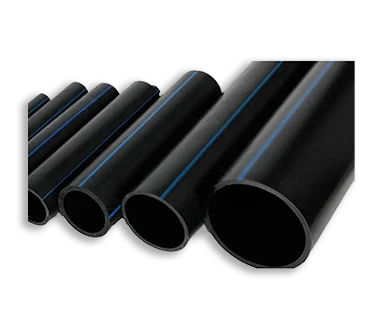Dec . 10, 2024 02:00 Back to list
High-Density Polyethylene Pipelines for Agricultural Applications and Efficient Irrigation Solutions
HDPE Pipe for Agriculture Essential Solutions for Modern Farming
In recent years, agriculture has evolved significantly, adapting to the challenges brought about by climate change, water scarcity, and the need for increased food production. Among the innovative solutions that have emerged, High-Density Polyethylene (HDPE) pipe stands out as a vital component that is transforming irrigation practices and enhancing agricultural efficiency. This article will explore the benefits, applications, and importance of HDPE pipes in the agricultural sector.
Understanding HDPE Pipes
HDPE is a thermoplastic polymer known for its high strength-to-density ratio. HDPE pipes, made from this material, are renowned for their durability, resistance to corrosion, and lightweight nature. They are designed to withstand varying environmental conditions, making them ideal for agricultural applications. The manufacturing process of HDPE pipes involves high-density polyethylene pellets that are melted and extruded into the desired pipe shape, ensuring uniformity and quality throughout.
Benefits of HDPE Pipes in Agriculture
1. Durability and Longevity One of the primary advantages of HDPE pipes is their durability. They are resistant to rust, chemicals, and environmental stressors, allowing them to have a longer lifespan compared to traditional materials like metal or PVC. This ensures reliable service over many years, reducing the need for frequent replacements.
2. Lightweight Design HDPE pipes are significantly lighter than their metal counterparts, simplifying transport and installation. This feature allows farmers to quickly set up irrigation systems without the need for heavy machinery, saving both time and labor costs.
3. Flexibility and Versatility HDPE pipes can be manufactured in various diameters and lengths, making them suitable for diverse applications, from small-scale farms to large agricultural enterprises. Their flexibility also allows them to be used in a variety of terrains, including hilly landscapes, which can be challenging for traditional rigid piping systems.
4. Improved Water Efficiency With water scarcity becoming an increasingly pressing issue, efficient irrigation methods are crucial. HDPE pipes support modern irrigation techniques such as drip and sprinkler systems, which provide precise water delivery directly to the plant roots, minimizing evaporation and runoff. This efficient water usage not only conserves water but also promotes healthier crop growth.
hdpe pipe for agriculture factory

5. Cost-Effectiveness While the initial investment in HDPE pipes may be higher than other materials, the long-term savings from reduced maintenance and water conservation make them a cost-effective choice for farmers. The extended lifespan of HDPE pipes further augments their economic benefits over time.
Applications in Agriculture
HDPE pipes find extensive applications in agriculture, playing a critical role in irrigation systems, drainage, and water management. They are commonly used in
- Irrigation Systems Effective irrigation is essential for maximizing crop yields. HDPE pipes are employed in drip irrigation systems to ensure that water reaches the roots efficiently. This minimizes waste and helps maintain optimal soil moisture levels.
- Drainage Solutions Good drainage is equally essential for healthy crops. HDPE pipes can be used in subsurface drainage systems, helping to prevent waterlogging by facilitating the movement of excess water away from the root zone.
- Fertigation The combination of fertilization and irrigation, known as fertigation, is enhanced by HDPE pipes, enabling farmers to deliver nutrients and water directly to plants through the irrigation system, optimizing growth.
Conclusion
In conclusion, HDPE pipes represent an essential advancement in agricultural technology. Their numerous benefits, including durability, flexibility, and cost-effectiveness, make them invaluable for modern farming practices. As agriculture continues to face challenges related to water scarcity and the need for increased productivity, the adoption of HDPE pipes is likely to rise. By facilitating efficient irrigation and improving water management, HDPE pipes not only support sustainable farming but also contribute to the overall goal of global food security. Farmers looking to modernize their practices should consider HDPE pipes as a key component of their agricultural infrastructure.
-
HDPE & PPR Pipe Elbows Durable, Corrosion-Resistant Solutions
NewsJun.01,2025
-
HDPE Tee Fittings 48-Inch HDPE Pipe Solutions & Cost Optimization
NewsJun.01,2025
-
Premium PVC Perforated Pipes for Efficient Drainage Trusted Factories
NewsMay.31,2025
-
Premium Perforated PVC Pipes for Drainage Solutions Trusted Factories & Manufacturers
NewsMay.31,2025
-
HDPE Electrofusion Fittings Durable, Leak-Proof Conduit Solutions
NewsMay.31,2025
-
HDPE Compression Fittings Leak-Proof, Corrosion-Resistant Solutions
NewsMay.31,2025

